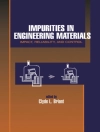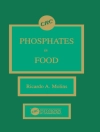Food Processing and Preservation Technology: Advances, Methods, and Applications confronts the challenges of food preservation by providing new research and information on the use of novel processing and preservation technologies during production, processing, and transportation in the food industry for the improvement of shelf life and the safety of foods.The book is organized in two main parts. The first section focuses on novel and nonthermal processing of food and food products. It looks at dielectric heating and ohmic heating as well as three-dimensional printing of foods and ozonization of food products.Part two delves into process interventions for food processing and preservations, discussing the applications of diverse novel food processing. The authors discuss drying technologies, advances in food fermentation technologies, mechanization of traditional indigenous products for preservation of food and safety, and different properties and concepts of bakery products.Key features: Examines different properties and attributes of some bakery foods, etc. Elucidates on novel nonthermal processing techniques and their mechanisms of actions for minimal loss of food nutrients and for food safety Discusses a variety of modern technologies that aim to reduce the spoilage of food products This volume presents valuable research on food processing, quality control, and safety measures for food products by means of novel processing and preservation technologies during production, processing, and transportation in the food industry.
Preeti Birwal & Megh R. Goyal
Food Processing and Preservation Technology [PDF ebook]
Advances, Methods, and Applications
Food Processing and Preservation Technology [PDF ebook]
Advances, Methods, and Applications
Dieses Ebook kaufen – und ein weitere GRATIS erhalten!
Sprache Englisch ● Format PDF ● Seiten 314 ● ISBN 9781000353426 ● Herausgeber Preeti Birwal & Megh R. Goyal ● Verlag Apple Academic Press ● Erscheinungsjahr 2022 ● herunterladbar 3 mal ● Währung EUR ● ID 8313287 ● Kopierschutz Adobe DRM
erfordert DRM-fähige Lesetechnologie












